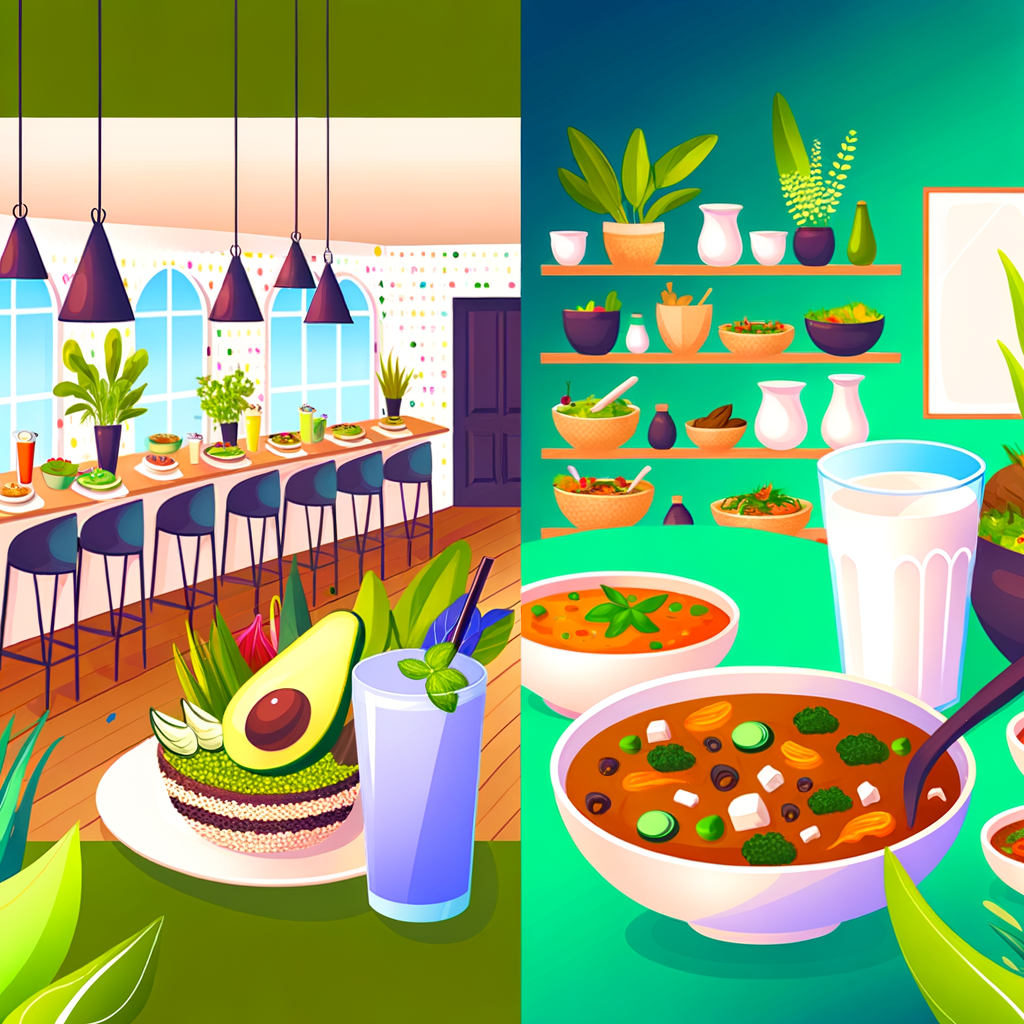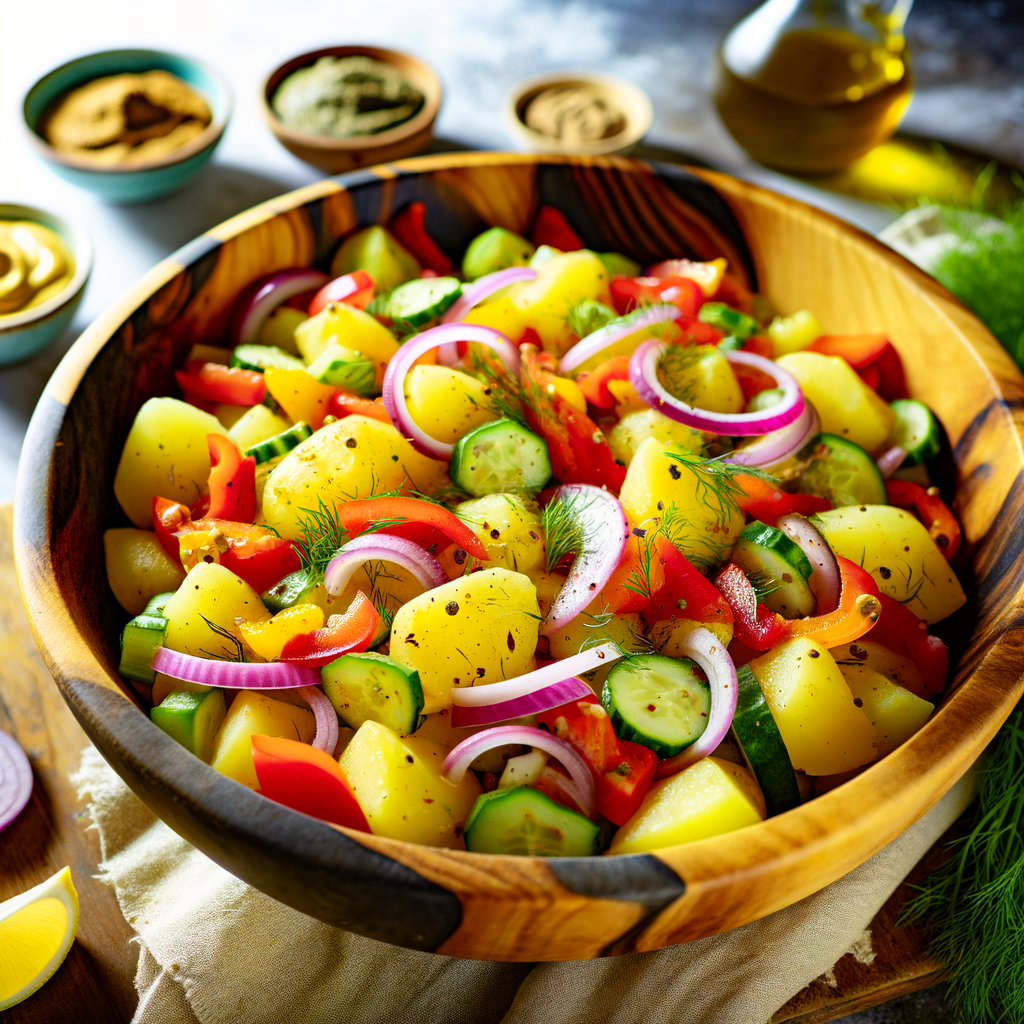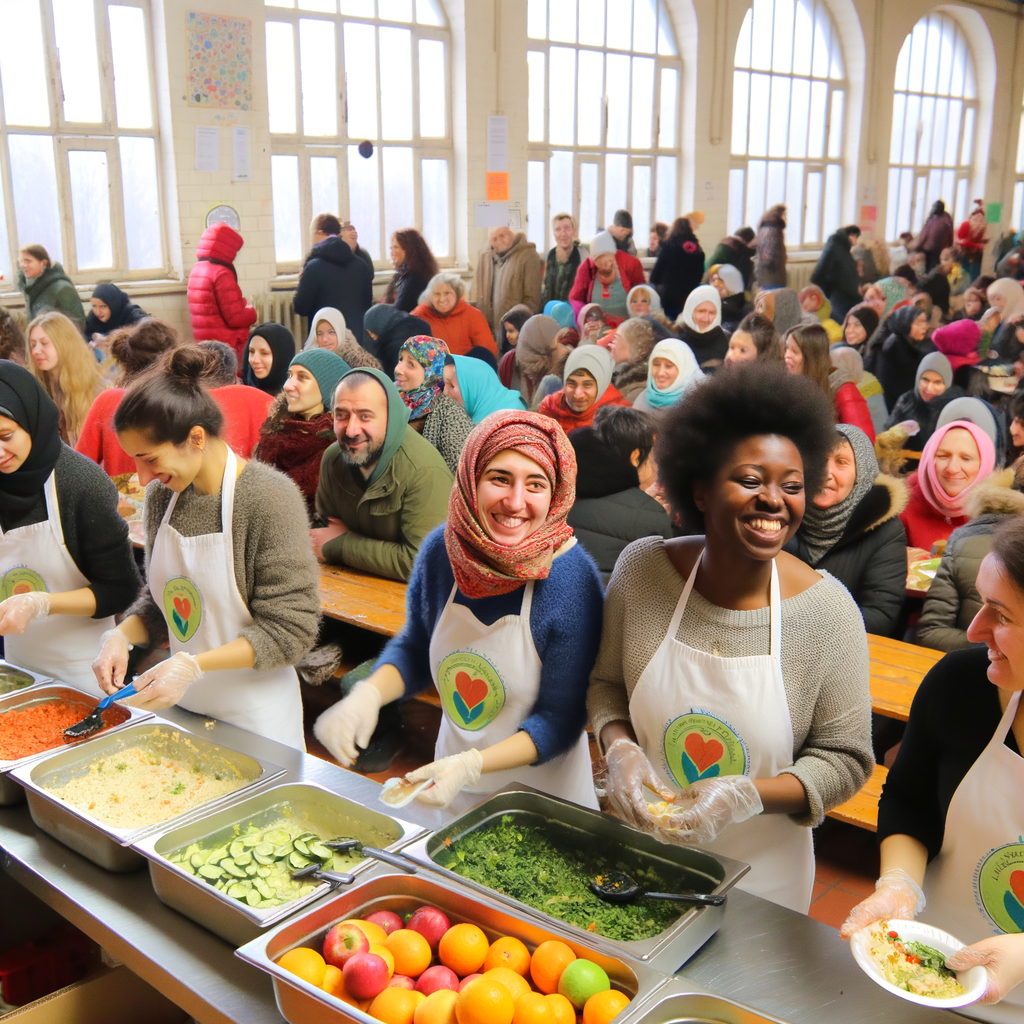Embracing Vegan Plant-Based Cooking
Moving beyond traditional frontrunners, the world of vegan plant-based cooking is rapidly evolving. More people are beginning to explore plant-based meals, discovering delicious and healthful alternatives to meat-based dishes. This shift is driven by a growing interest in sustainability, animal welfare, and personal well-being.
Why Go Vegan?
The reasons to embrace a plant-based diet are as varied as the individuals making the switch. Here are some compelling motivators:
- Health Benefits: A vegan diet can result in lower cholesterol levels, reduced risk of heart disease, and better weight management.
- Environmental Impact: Plant-based diets require fewer resources like water and land, leading to a smaller ecological footprint.
- Animal Welfare: Abstaining from animal products reduces the demand for factory farming, which is often associated with inhumane practices.
Getting Started with Plant-Based Cooking
Starting a vegan lifestyle might seem daunting, but with a few simple strategies, you’ll find it’s easier than you think.
Stocking Your Pantry
Having the right ingredients on hand is the first step to successful vegan cooking. Here are some essentials to keep in your pantry:
- Grains: Brown rice, quinoa, barley, and farro are versatile and nutrient-dense bases for many dishes.
- Legumes: Beans, lentils, and chickpeas are excellent sources of protein and fiber.
- Nuts and Seeds: Almonds, walnuts, chia seeds, and flaxseeds provide healthy fats and a crunchy texture to meals.
- Spices and Herbs: Cumin, turmeric, garlic, and fresh herbs can elevate the flavor profile of your dishes.
- Plant Oils: Olive oil, coconut oil, and avocado oil are great for cooking and dressings.
Embracing Protein-Rich Plants
Protein is a common concern for those new to veganism, but plenty of plant-based sources can meet your dietary needs. Incorporating foods like tofu, tempeh, and edamame ensures you get enough protein. Additionally, don’t overlook vegetables like spinach and broccoli, which also contribute to your protein intake.
Popular Vegan Ingredients and Their Uses
Understanding how to use versatile vegan ingredients can dramatically transform your cooking experience.
Nutritional Yeast
Often referred to as “nooch,” nutritional yeast is praised for its cheese-like flavor and high vitamin B12 content. It can be sprinkled on popcorn, stirred into sauces, or used as a cheese substitute in various dishes.
Cashew Cream
Soaked and blended cashews can create a creamy base for sauces, soups, and desserts. This simple yet powerful ingredient adds richness and depth to vegan recipes without dairy.
Aquafaba
The liquid from canned chickpeas, known as aquafaba, has remarkable properties that allow it to mimic egg whites. It can be whipped into meringues, used as a binder in baked goods, or even frothed for vegan cappuccinos.
Delectable Vegan Recipes to Try
Experimenting with new recipes can make the transition to a plant-based diet more enjoyable. Below are some enticing options to add to your repertoire:
Smoky Lentil Tacos
These vegan tacos are bursting with flavor:
- Ingredients: Lentils, smoked paprika, garlic, onion, taco seasoning, tortillas, fresh avocado, and your favorite salsa.
- Instructions: Sauté onions and garlic, add lentils and seasoning, cook until tender. Serve on tortillas with avocado and salsa.
Vegan Alfredo Pasta
A rich, dairy-free take on a classic favorite:
- Ingredients: Cashews, garlic, nutritional yeast, unsweetened almond milk, pasta, spinach.
- Instructions: Blend soaked cashews with garlic, nutritional yeast, and almond milk to create a creamy sauce. Toss with pasta and spinach.
Chocolate Avocado Mousse
A delightful dessert that’s both healthy and decadent:
- Ingredients: Ripe avocados, cocoa powder, maple syrup, vanilla extract.
- Instructions: Blend all ingredients until smooth and creamy. Chill before serving.
Tips for Success
Adopting a vegan lifestyle can be initially challenging but becomes more rewarding over time. Here are some tips to help you succeed:
- Start Slowly: Gradually reduce your consumption of animal products and experiment with plant-based alternatives.
- Find a Community: Join vegan groups or forums for support, recipes, and advice.
- Educate Yourself: Reading books, watching documentaries, and that focus on veganism can strengthen your commitment and provide valuable knowledge.
- Get Creative: Don’t be afraid to experiment with new ingredients and cooking methods.
Conclusion
Transitioning to a vegan, plant-based diet offers myriad benefits for your health, the environment, and animal welfare. With a well-stocked pantry, a focus on protein-rich plants, and an enthusiastic approach to trying new recipes, you’ll find that vegan cooking can be both fulfilling and delicious. Whether you’re motivated by ethical considerations, health concerns, or environmental impacts, the journey towards veganism can lead to a more enriching lifestyle for you and those around you.











